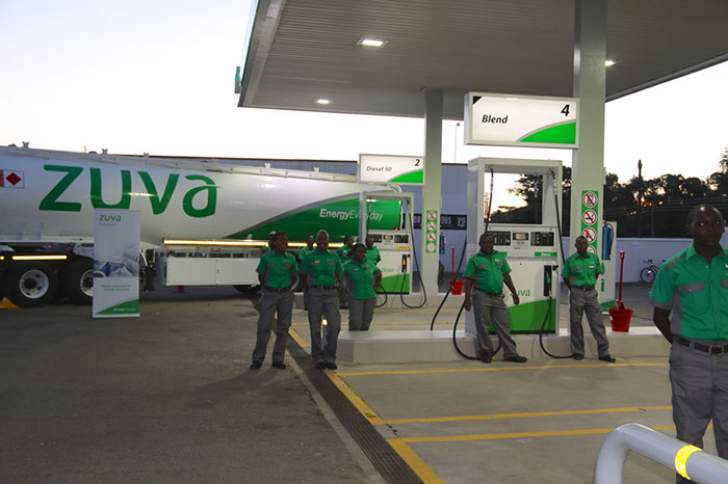The Zimbabwe Energy Regulatory Authority (ZERA) has proposed that the Energy ministry should consider allowing some players in the fuel industry to sell fuel in foreign currency. Fuel shortages have crippled many fuel businesses and the situation seems to be worsening daily. Long queues characterise many service stations. This has led to debate on the feasibility of continuing to sell fuel in bond notes or Real Time Gross Settlement (RTGS) when fuel suppliers require to be paid in foreign currency.
Speaking to the Joel Gabbuza-led Parliamentary Portfolio Committee on Energy, Zimbabwe Energy Regulatory Authority (Zera) acting Chief Executive Officer, Eddington Muzarabani confirmed this development. He advised that two of Zuva Petroleum service stations (Groombridge and Victoria Falls) are already piloting the project. ZERA believes that if more players are allowed to sell fuel in foreign currency, this will improve fuel supply in the country. This is due to the fact that those selling in foreign currency will no longer have to rely on the Reserve Bank of Zimbabwe allocations. They will procure their fuel using their own resources.
In terms of the proposal, fuel purchased via the Reserve Bank of Zimbabwe facility will continue to be sold for bond or RTGS. On the other hand, it is the fuel sourced by individual players which can be sold in foreign currency. Even then, the foreign currency will be in the form of Foreign Currency Account swipe/cards and not cash. This, according to Mr Muzarabani, provides a reconciliatory mechanism or checks and balances to ensure that fuel procured via the RBZ will not end up being sold in foreign currency. Kuwadzana East MP, Charlton Hwende expressed reservations on the proposal citing that this move is likely to negatively affect the majority of the population who are paid in RTGS.
Fellow MPs also complained that some service stations are prioritising card holders while those without the cards are being turned away. “The cards are an internal arrangement whereby card holders would have paid in advance and the garages would have taken people’s money upfront”, Mr Muzarabani responded. Petrotrade Chief Executive Officer Godfrey Ncube added that this was a small percentage of residual fuel which they leave in tanks for card holding customers and those with coupons. It looks like this is a reward for loyal customers.
With regards to going 100% ethanol blending, the Zera boss said, based on technical advice from experts, it is not possible to have 100% ethanol in Zimbabwe. He said Zimbabwe can only go up to 10% of ethanol blend because very few vehicles in Zimbabwe can take up to E80. Apart from the Jeep Cherokee, most vehicles will experience technical issues if the country is to move to E100.
On the issue of Letters of Credit (LCs), the major fuel companies, Petrotrade, Total Zimbabwe, Puma, Engen and Zuva Petroleum are now proposing that the LCs should now cover legacy debts owed to fuel traders. It is important to note that in 2017, these major fuel companies came together and established the Major Oil Companies Industry Forum which adopted the use of LCs as a way of avoiding the foreign currency shortages. In simple terms, Letters of Credit are guarantees by the bank that they will pay for fuel in future. Based on this, fuel companies are allowed to pay RTGS on the transitional account which is local and then fuel is delivered. The Reserve Bank of Zimbabwe then pays for this fuel after it has already been delivered. The proposal now is for the LCs to cover fuel which was already owed before this arrangement, in other words, old invoices. Once the debt is cleared, fuel traders can supply in advance again. This is likely to ease the pressure on the relationship between fuel companies and fuel traders. Petrotrade alone is believed to currently owe around $2 million to fuel traders. The major fuel traders are Trafigura, TOSTA, IPG and Glencore.
It remains to be seen if Zera’s proposal will be accepted and more so, if it will help to ease the current fuel woes. The risk is that once some companies are allowed to sell fuel in foreign currency, all companies will want to sell in foreign currency. This will affect the already over burdened normal person on the street who cannot access foreign currency. Clear implementation strategies need to be implemented to also avoid arbitrage where RBZ procured fuel can end up being sold for foreign currency.









Zimbabwe has already tacitly accepted that the Bond is not equal to the USD, and allowing service stations to sell fuel using the greenback is just further admission to this fact. Government is promoting a falsehood in persisting this fallacial, unrealistic equality, ostensibly to protect the man in the street. In fact, this charade is hurting the common man, through the three-tire payment system in the face of stagnant salaries and wages. How long this charade is sustainable is questionable, that is if it can be sustained at all. The solution is to go the whole hog, and dollarise the economy. We did this in 2008, creating a stable, growing economy. The ceiling we reached four years later was predictable and could have been avoided, the next inevitable step was avoided because 2013 was an election year. Maintaining populist policies to the harm of the economy…a policy such as the bond note charade…is only inflicting more pain on the population, and is far from the “Austerity for Prosperity” and “Open for Business” mantras. It is a grand dishonesty which is the cause for the perpetually declining economy. Though a subject for another day…I also believe, quiet strongly…that it is time we dismantled the politically exclusive machineries in our midst. They are not only exclusive, but elitist and extractive…extracting their livelihoods and relevancy from a suffering populace. Our political institutions, being exclusive, extractive and elitist, give birth to similarly extractive, exclusive and elitist economic institutions. None of the two systems make for economic growth inclusive of the populace.
At what price will the fuel be sold at in hard currency?